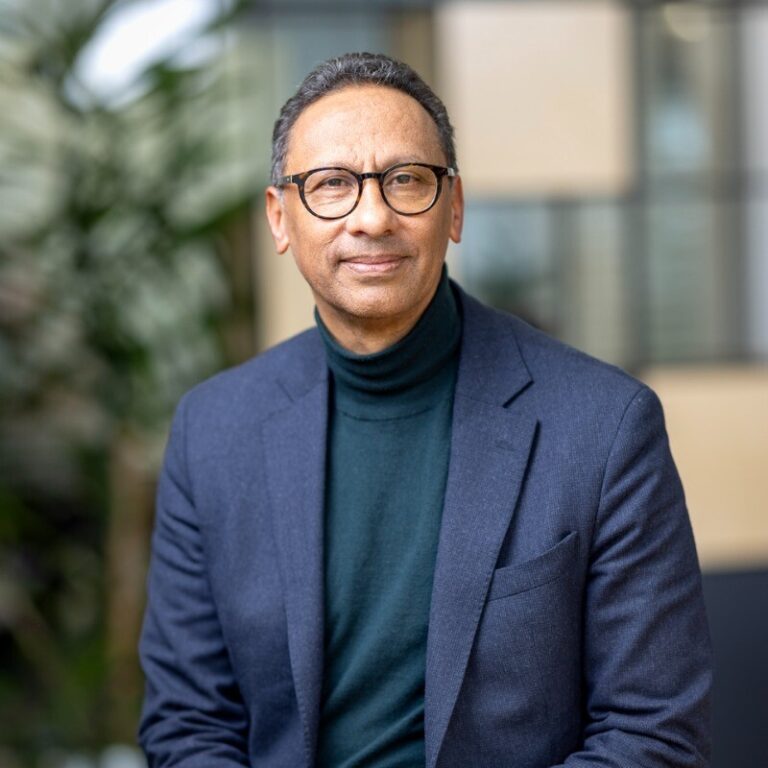Lloyds Bank’s AI revolution: How a skills-based strategy is tackling the global talent shortage
Thinking of becoming a skills-based organization? Hear how Lloyds Bank’s Stuart Martin and Workdays’ Carolyn Horne are working together to make this shift.
News in Brief
With the help of Workday, Lloyds Bank is transforming its HR strategy to focus on skills development.
The bank, which reached a revenue of £18.79 billion in 2024, is leveraging AI to streamline its recruitment processes and broaden its diverse talent pool.
Stuart Martin from Lloyds Bank and Carolyn Horne from Workday share their thoughts with UNLEASH in an exclusive conversation.
There’s no shying away from the fact that AI is one of the hottest topics in the HR sector at current.

Stuart Martin, Director Global People Services and People Platform Leader at Lloyds Bank
That’s why, back in 2017, Lloyd’s began its journey with Workday and Workday Skills Cloud, to utilize the technology and to focus on one single core HR system of record.
Now, seven years on, Stuart Martin, Director Global People Services and People Platform Leader at Lloyds Bank, describes the tool as “pivotal,” allowing the bank to become data-driven and skills-based – an overall goal, helping the organization to address the global skill shortage.

Carolyn Horne, Senior VP EMEA Strategic Customer Engagements at Workday
In an exclusive interview with Martin and Carolyn Horn, Senior VP EMEA Strategic Customer Engagements at Workday, UNLEASH explores how Lloyds is leveraging AI and a skills-based strategy to drive development, enhance employee engagement, and address the global skills deficit by upskilling and reskilling their existing talent pool.
Developing employees through upskilling
With over 65,000 employees and an additional 20,000 contingent workers, Lloyds is a global organization on a mission to become a more skills-based organization.
In today’s market, more companies are shifting towards this approach to stay competitive, understanding that skills, not just degrees, drive real performance.
We know for a fact that if you look over the horizon, skills are evolving quickly, and different skills are needed,” Martin begins.
“Skills do have a shelf life, so we are quite aware that we’re not going to hire ourselves out of a skills deficit across the globe. This means we need to develop those skills within our organization.”
For Lloyds, this offers the best of both worlds, as employees can be developed, upskilled, or reskilled, while also leveraging the existing institutional knowledge and capabilities they have.
While pivoting to become more skills-focused, the organization reviewed its business strategy to make multiple changes, which includes deploying a more simplified skills architecture.
It also launched a learning experience platform to make learning easier and more intuitive for colleagues, as it is mobile-enabled with bite-sized chunks and AI-enabled capability to help develop skills.
But even more interestingly, AI is used to identify skills that can be enhanced, to then provide training to those employees. For Martin, this is a combination of “upskilling and reskilling” to put employees “back into the workforce with different roles”.
“There is a skill shortage, so it’s really about looking at developing your existing workforce in order to retain them,” Horne adds in support. “Employee engagement is a key to this, as well as listening to employees developing their careers and developing their skills.”
Implementing AI responsibly
Gen AI is clearly a hugely powerful tool, with incredible capability and opportunity.
That’s why, Martin believes that it needs to be treated as “one of the evolutionary tools for our era” – not just like any other technology.
“We see it as fundamentally more powerful, different, and much more impactful across the world of work,” he adds.
For Lloyds, one way to ensure it leverages AI in the right way is by substantially enhancing its governance.
To do so, there is a dedicated team focused on making sure any AI, but more specifically any Gen AI, that comes into the organization’s ecosystem is compliant with multiple sets of requirements, including regulatory, ethical, unbiased, secure, and so on.
“We make sure it’s fit for purpose, both for our organization and from an HR perspective. For example, we ensure we know the data sources, how it has been curated, used, stored, and how we will use it. All usage is with explicit consent.
We’ve taken a very different approach to make sure that our governance reflects the powerful impact and pervasiveness of AI across the HR lifecycle by putting in place a cross-functional group of experts – called the AI Control Tower – who meet every two weeks.”
“One of the things that the Lloyd’s team have done really well and we could advise other HR leaders to do, particularly all around the governance side of Gen AI, is setting up the steering committees and identifying the right use cases and so on,” Horne adds in support.
On the Gen AI side, Martin explains that to meet these requirements, use cases are tracked through a rigorous process, balancing risk, bias, regulatory requirements, value, etc., to make sure it goes into the organization’s technology ecosystem correctly – within some very specific guardrails.
To assist with this, Lloyds upskilled its top 300 senior leaders by taking them through an AI masterclass, which includes internal and external insights to boost their confidence and comfort levels needed to make strategic decisions. Twelve very specific emerging technology modules were also added to the workforce, giving the leaders to enhance their understanding of what it means and how it can be used to the best of its ability.
“One way we have started using Gen AI is to enhance wellbeing,” Martin shares. “Traditionally, we’ve had one, two, or three people transcribing the call, making sure the details are correct.
“Our consultants would then spend a significant amount of time writing the notes, whereas our AI capability can achieve this automatically, including summarization and highlighting trends.
“The benefit for us is that the interactions between our colleagues are much deeper and more human – there is less time focused on writing notes and more time spent on their actual needs. This is a mutually beneficial outcome and a good example of having a human in the loop.”
At Workday, Horne describes responsible AI as being “the core” of everything the business does.
AI has to be ethical, meaning the human is at the center,” she adds.
“It’s absolutely crucial to not take humans out of that process because when thinking about AI and use cases, many customers will ask: “Should we use our vendors, or should we develop it ourselves?
“Well by all means, look at your vendors, but also have a look around. What’s their philosophy on AI, what’s their governance? This needs to be done in order to understand fully before you make the decision around the vendor and the data quality.”
For Lloyds, there is a very strict regime in place to ensure that AI is used ethically. For example, the organization’s DEI teams are heavily involved and new solutions are designed, including making sure there are no hallucinations that sort of come through.
“It’s an evolving capability,” Martin explains. “We can see the benefit of this, but we are mindful, so we’re doing it with caution and care.”
Boosting efficiency and diversity with AI in recruitment
Although AI has brought a number of benefits to Lloyds, Martin explains that when the business first started out, a great deal of value was focused on helping the HR team review CVs.
Due to an incredibly high demand – the 2025 Graduate Recruitment Program saw between 65,000 and 75,000 applications – AI was used to initially screen, in a well-regulated and unbiased manner. For example, the AI identifies and flag people who don’t have the right to work in the UK, to narrow down the applicants.
AI-enabled chatbots were also on-hand to help with general queries – these were available 24/7. From this, Lloyd’s saw a huge increase in efficiency, while also maintaining the organization’s focus.
AI can also automatically allocate some of the applications by geography, functional area, skills, etc., allowing recruiters to do these initial selections without, for example, taking university names into account. This helps with our drive to bring in more people from diverse backgrounds.
We’re using AI to ensure we get some diversity balance earlier in our recruitment pipeline, whether in terms of gender or ethnicity,” Martin comments.
“This approach funnels the CVs down to a place where, when we put the human in the loop, we have a smaller subset of CVs that meet certain criteria, which would have been done manually before.
“We know that for some people, the application process can be quite daunting, so we’re using AI to identify people against a set of criteria.
“We offer them some skills assessment prior to the formal assessment, so they can test and learn. This allows people to gain confidence because we believe having the skills and the opportunity is just as important.”
In terms of retention, AI helps to identify proactive career path options for individuals who wish to stay at the bank.
Providing a real-life example, Martin explains that by using embedded AI, if five people have done training on a specific skill set, but another five colleagues have not, they will be nudged towards the Workday learnings with specific messaging.
“How we think about AI at Workday, is by the acceleration of manual, administrative tasks that could be easily automated,” Horne inputs. “There’s assisting – so helping employees with their journeys – meaning the tasks that they do on a daily basis will help to drive employee engagement.
“Regarding the transformation of AI, we’ve had a number of AI agents that are really driving the transformation and sorting through CVs, that would have had to be done manually before.
“Importantly, there needs to be an explanation as to why these candidates were suggested as being a good alignment for that role, while taking into account diversity and extracting bias.”
With this is mind, would you be keen to shift away from a traditional business architecture, and towards a skills based approach? Or, perhaps you’re already there!
Sign up to the UNLEASH Newsletter
Get the Editor’s picks of the week delivered straight to your inbox!

Senior Journalist, UNLEASH
Lucy Buchholz is an experienced business reporter, she can be reached at lucy.buchholz@unleash.ai.
Contact Us
"*" indicates required fields
Partner with UNLEASH
"*" indicates required fields